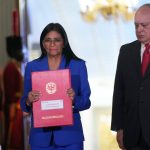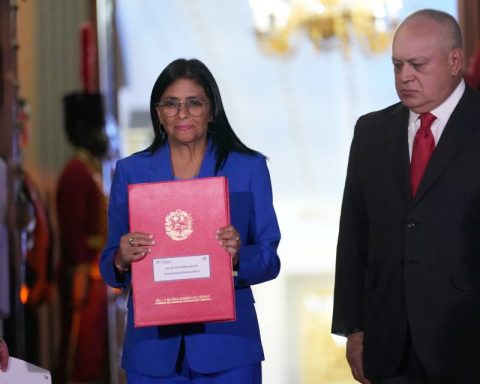On January 22, 2020, President Luis Lacalle Pou published on his Twitter account the preliminary draft Law for Urgent Consideration (LUC) that he would send to Parliament. In it, article 192 said: “The monopoly on the import, export and refining of crude oil and its derivatives established in favor of the State and managed by the National Administration of Fuels, Alcohol and Portland (Ancap) is abolished.”
of that demonopolizing impulsetwo years later a regime remained that maintains the legal privilege of Ancap —to the joy of the defenders of the state monopoly— but it takes the Import Parity Prices (PPI) as a reference to approve local tariffs —as a nod to the old liberal desire for a competitive market—.
Consensus
Months after publishing that “draft”, as the president called it, the same wording that was reproduced before on demonopolizing Ancap arrived at the Legislative Palace, although with some additions and in another article, number 230.
At that time, the Minister of Industry, Energy and Mining Omar Paganini defended the measure in the Special Commission formed to deal with the LUC. The chief argued that there is excessive regulation of the fuel and crude oil market that “is not only based on Ancap’s monopoly, but also on the fact that the entity plays a role in the entire regulatory chain.”
“We understand that this structure ends up favoring inefficiencies because, although it is effective because it ensures that we have a supply of fuel throughout the national territory and there are no supply security or quality problems, it is not efficient in the sense that there is no search for best costs. And we, as a government coalition, are committed to lowering fuel costs in general”, declared the minister.
However, that wording did not survive. The demonopolization of the state oil company promoted by the National Party did not gather the necessary support in the Colorado Party and Cabildo Abierto —in addition to being resisted by the Broad Front— so the whites had to collaborate with their main partners in an alternative proposal.
After discussing the matter in the Special Commission, three articles on the fuel market were approved, of which two (235 and 236) were unanimously. The agreed solution of taking the PPI of gasoline and diesel as the axis of reference for prices to the public was seen at the time as a tolerable path by the Broad Front, which even made contributions to its drafting —in which Carolina Cosse participated— and voted alongside the government coalition.
Senator Gustavo Penadés (PN) expressed on that occasion that the support of the leftist coalition caused surprise in the official ranks.
The FA changed its position
The LUC was approved by Parliament in a short time and entered into force on July 9, 2020. Not long after, the PIT-CNT decided to embark on collecting signatures to call a referendum with the purpose of repealing the law or part of it. (wasn’t clear yet).
While the discussion was on the table, the Broad Front entered into talks with the trade union center to join the campaign, although they had discrepancies on which articles to repeal: the political force did not want, at first, to enter into the contradiction of the military against some articles that he voted with the ruling party —among which were the two that currently regulate the fuel market—.
“I think that among the issues on which it is most difficult for the FA to argue is on this. Because it is difficult to explain why they changed their position,” political scientist Adolfo Garcé told The Observer.
The negotiation ended up including the articles on the fuel market voted by the FA. Numbers 235 and 236 are among those who will go to the polls next Sunday.
discretion
In between, the articles are approved and the rate-setting mechanism is in place, but the Executive Branch has hesitated to apply its method as conceived. In recent months, the international values of crude oil have skyrocketed and the authorities have decided not to completely transfer the increases marked by the Ursea PPI to the rates.
In the last monthly review of prices, Lacalle Pou justified that his administration “was touched a year ago and little oil at US$40 and little (per barrel), a month ago it was US$90, now it bounces above US$ 100… It is very volatile, Ursea suggested certain increases and we (for the government) decided to increase half of what was suggested”.
The economist Gabriel Oddone expressed his opinion on Channel 12 that the time in which the new regulations were implemented was not the most appropriate.
“When this initiative was put on the table, the price of oil was below historical averages”, which made it very likely that it would increase and that —when oil pushed upwards— the rule would be broken. “A good tool was used at a time that was not necessarily appropriate, which makes the tool itself questionable. The idea is fine, I think the implementation timing was not the best”, he analyzed.
Another of the government’s arguments to support its recent actions has been to allude to Ancap’s good numbers. It is that just as it is established that the Executive receives a report from the Ursea with the PPI, it also decides based on a financial report sent by the state entity.
In this regard, Garcé recalled that, in any case, “the government’s idea was not to politically manipulate fuel prices and in reality the government is not unaware that the increase in fuel prices is an Achilles’ heel. I think that’s one of the reasons why prices don’t go up as much as you’d expect based on their self-set rule,” he said.
“That is why it is an uncomfortable issue for everyone: the Front is moving away from what it voted for; the government is moving away from what it would have wanted”, summarized the political scientist.
















